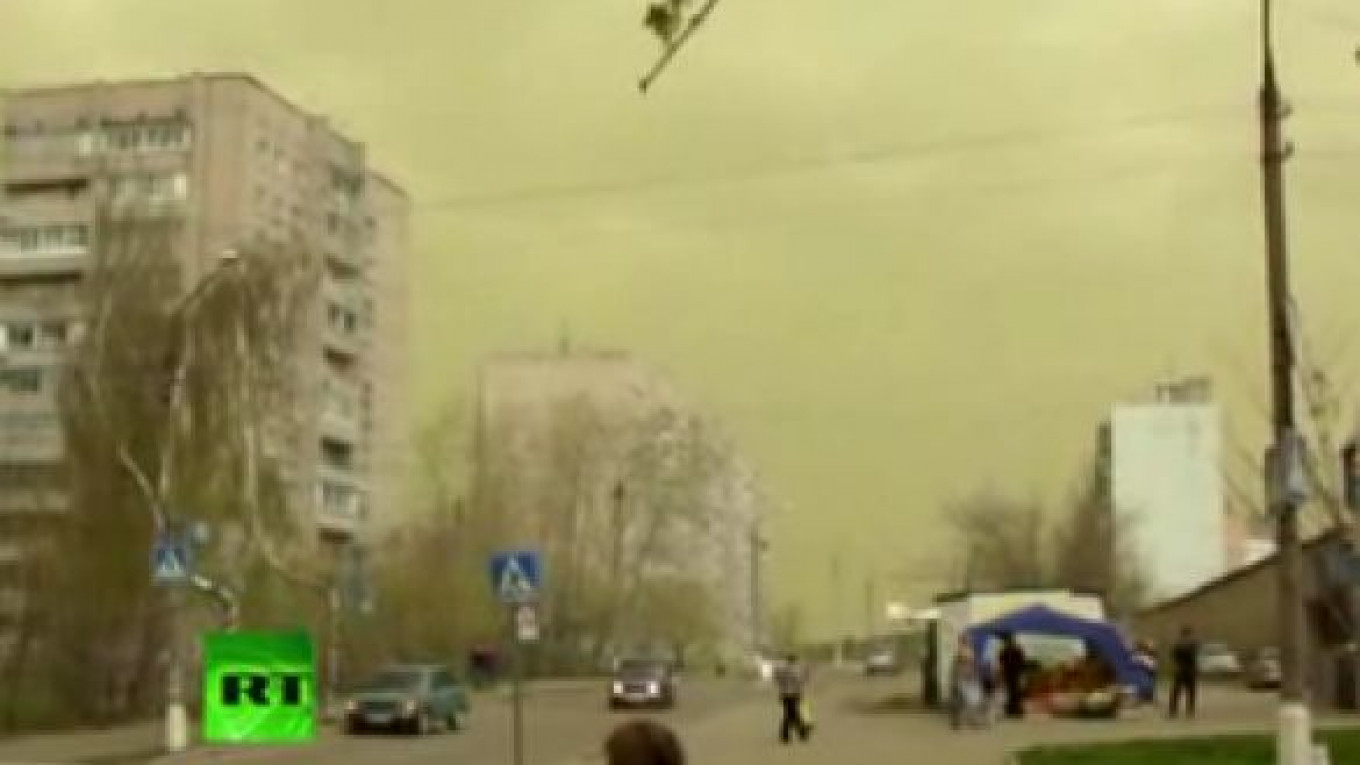Moscow’s sky was back to normal Friday after a mysterious green cloud that descended on part of the city and prompted emergency calls from residents fearing a chemical spill had dissipated.
But nothing so sinister as chemical agents were at hand. Experts allayed worries by explaining that the fog was nothing more than a burst of one of nature's clearest signs that spring has come — pollen.
"High heat, which came to the Moscow region with an intense wind, caused the formation of a large amount of pollen that, mixing and moving in the air, can form such a cloud," an unidentified city official told Interfax.
This didn't stop users of social networks from expressing their alarm.
"Massive green ashes cover Moscow. Rumors on chemical accident. Witness reports on dozens of ambulances driving to the Garden Ring," finance blogger @russian-market wrote on Twitter.
Alarmed callers flooded emergency lines as well. In the neighboring Tula region, citizens called to voice concerns that green dust coating windows and cars was connected to a large chemical plant nearby, although authorities said that a check debunked the idea.
In a disturbing coincidence, Thursday also marked the 26th anniversary of the 1986 Chernobyl disaster that sent a cloud of radioactive dust across several countries in Europe.
The primary culprit on Thursday was pollen from birch trees, whose levels are four times higher than normal, allergy specialist Anatoly Ponamaryov told Interfax. He advised allergy sufferers to remain at home for the time being and take medication for up to 30 days until the heaviest pollen period subsides.
A Message from The Moscow Times:
Dear readers,
We are facing unprecedented challenges. Russia's Prosecutor General's Office has designated The Moscow Times as an "undesirable" organization, criminalizing our work and putting our staff at risk of prosecution. This follows our earlier unjust labeling as a "foreign agent."
These actions are direct attempts to silence independent journalism in Russia. The authorities claim our work "discredits the decisions of the Russian leadership." We see things differently: we strive to provide accurate, unbiased reporting on Russia.
We, the journalists of The Moscow Times, refuse to be silenced. But to continue our work, we need your help.
Your support, no matter how small, makes a world of difference. If you can, please support us monthly starting from just $2. It's quick to set up, and every contribution makes a significant impact.
By supporting The Moscow Times, you're defending open, independent journalism in the face of repression. Thank you for standing with us.
Remind me later.






